第16章
In the course of the summer he returned to Lichfield,where he had left Mrs.Johnson,and there he at last finished his tragedy,which was not executed with his rapidity of composition upon other occasions,but was slowly and painfully elaborated.A few days before his death,while burning a great mass of papers,he picked out from among them the original unformed sketch of this tragedy,in his own hand-writing,and gave it to Mr.Langton,by whose favour a copy of it is now in my possession.
Johnson's residence at Lichfield,on his return to it at this time,was only for three months;and as he had as yet seen but a small part of the wonders of the Metropolis,he had little to tell his townsmen.He related to me the following minute anecdote of this period:'In the last age,when my mother lived in London,there were two sets of people,those who gave the wall,and those who took it;the peaceable and the quarrelsome.When I returned to Lichfield,after having been in London,my mother asked me,whether I was one of those who gave the wall,or those who took it.NOW it is fixed that every man keeps to the right;or,if one is taking the wall,another yields it;and it is never a dispute.'
He now removed to London with Mrs.Johnson;but her daughter,who had lived with them at Edial,was left with her relations in the country.His lodgings were for some time in Woodstock-street,near Hanover-square,and afterwards in Castle-street,near Cavendish-square.
His tragedy being by this time,as he thought,completely finished and fit for the stage,he was very desirous that it should be brought forward.Mr.Peter Garrick told me,that Johnson and he went together to the Fountain tavern,and read it over,and that he afterwards solicited Mr.Fleetwood,the patentee of Drury-lane theatre,to have it acted at his house;but Mr.Fleetwood would not accept it,probably because it was not patronized by some man of high rank;and it was not acted till 1749,when his friend David Garrick was manager of that theatre.
The Gentleman's Magazine,begun and carried on by Mr.Edward Cave,under the name of SYLVANUS URBAN,had attracted the notice and esteem of Johnson,in an eminent degree,before he came to London as an adventurer in literature.He told me,that when he first saw St.John's Gate,the place where that deservedly popular miscellany was originally printed,he 'beheld it with reverence.'
It appears that he was now enlisted by Mr.Cave as a regular coadjutor in his magazine,by which he probably obtained a tolerable livelihood.At what time,or by what means,he had acquired a competent knowledge both of French and Italian,I do not know;but he was so well skilled in them,as to be sufficiently qualified for a translator.That part of his labour which consisted in emendation and improvement of the productions of other contributors,like that employed in levelling ground,can be perceived only by those who had an opportunity of comparing the original with the altered copy.What we certainly know to have been done by him in this way,was the Debates in both houses of Parliament,under the name of 'The Senate of Lilliput,'sometimes with feigned denominations of the several speakers,sometimes with denominations formed of the letters of their real names,in the manner of what is called anagram,so that they might easily be decyphered.Parliament then kept the press in a kind of mysterious awe,which made it necessary to have recourse to such devices.In our time it has acquired an unrestrained freedom,so that the people in all parts of the kingdom have a fair,open,and exact report of the actual proceedings of their representatives and legislators,which in our constitution is highly to be valued;though,unquestionably,there has of late been too much reason to complain of the petulance with which obscure scribblers have presumed to treat men of the most respectable character and situation.
This important article of the Gentlemen's Magazine was,for several years,executed by Mr.William Guthrie,a man who deserves to be respectably recorded in the literary annals of this country.The debates in Parliament,which were brought home and digested by Guthrie,whose memory,though surpassed by others who have since followed him in the same department,was yet very quick and tenacious,were sent by Cave to Johnson for his revision;and,after some time,when Guthrie had attained to greater variety of employment,and the speeches were more and more enriched by the accession of Johnson's genius,it was resolved that he should do the whole himself,from the scanty notes furnished by persons employed to attend in both houses of Parliament.Sometimes,however,as he himself told me,he had nothing more communicated to him than the names of the several speakers,and the part which they had taken in the debate.Johnson later told Boswell that 'as soon as he found that the speeches were thought genuine he determined that he would write no more of them:for "he would not be accessary to the propagation of falsehood."And such was the tenderness of his conscience,that a short time before his death he expressed his regret for his having been the authour of fictions which had passed for realities.'--Ed.
But what first displayed his transcendent powers,and 'gave the world assurance of the MAN,'was his London,a Poem,in Imitation of the Third Satire of Juvenal:which came out in May this year,and burst forth with a splendour,the rays of which will for ever encircle his name.Boileau had imitated the same satire with great success,applying it to Paris;but an attentive comparison will satisfy every reader,that he is much excelled by the English Juvenal.Oldham had also imitated it,and applied it to London;all which performances concur to prove,that great cities,in every age,and in every country,will furnish similar topicks of satire.